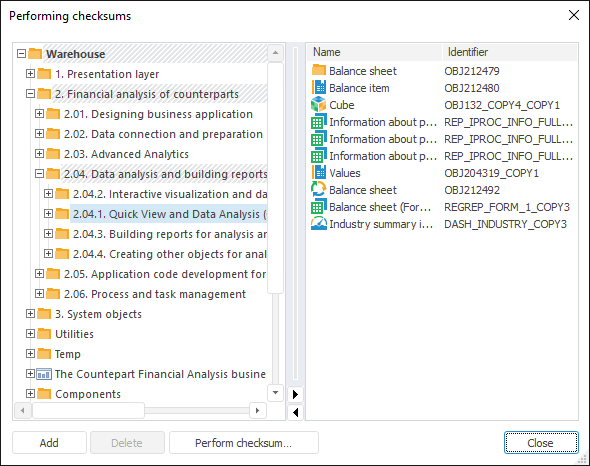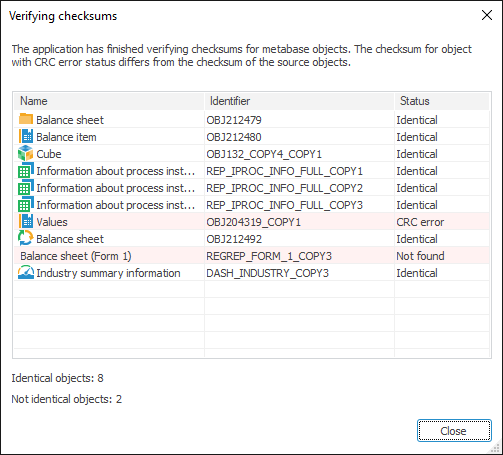
The checksum is used to check metadata integrity, it is performed based on object contents and changes on any object change. To verify checksum, it has to be initially performed. On the further object check, the previous checksum is compared to the current one. If the checksum changed, this means that the object was changed.
To calculate checksum in update manager:
In the web application select the Calculate Checksums update objects context menu item. After executing the item, the checksum is performed and saved.
In the desktop application select the Update > Select Checksums main menu item.
After the item was selected in the desktop application, the Performing Checksums dialog box opens:

The left part of the dialog box contains repository object tree and the right part contains the update structure and it generates the list of objects for which the checksum will be performed.
To add the object selected in the object tree to the list:
Click the Add button.
Select the Add Object object context menu item.
Drag&drop the object.
The display of objects in the tree can be set up using the context menu items:
Show Names. The tree displays only object names.
Show Identifiers. The tree displays only object identifiers.
Show Names and Identifiers. The tree displays both object names and identifiers.
To search object in object tree:
Select the Search item in the object's context menu.
Press CTRL+F.
After executing one of the operations thestandard search dialog box opens.
To delete the selected objects from the list, click the Delete button; a confirmation message is displayed.
To perform checksum of the created objects list:
Click the Perform Checksum button. A standard file saving dialog box opens.
Click the Save button.
After executing the operations, the checksum is performed and saved. A checksum file has the *.crc extension.
To verify checksums in update manager:
Open standard dialog box to select a file:
In the web application select the Verify Checksums update objects context menu item.
In the desktop application ,select the Update > Verify Checksums main menu item.
Specify the file containing previously saved checksum.
After executing the operations, the Verifying Checksums dialog box opens:

The dialog box displays a table with results of verifying the previous checksum with the current one. Identifiers, names and verification status are displayed for objects.
Available status of checksums verification:
Identical. The object's checksum remain unmodified.
Not Found. The object is absent in repository.
CRC Error. Objects checksum modified.
See also: